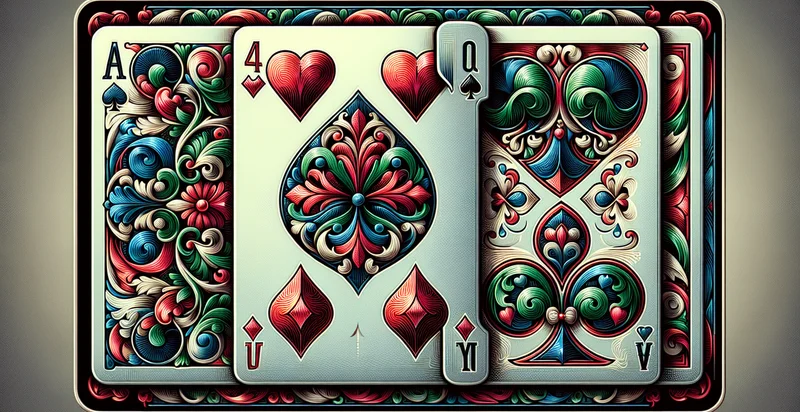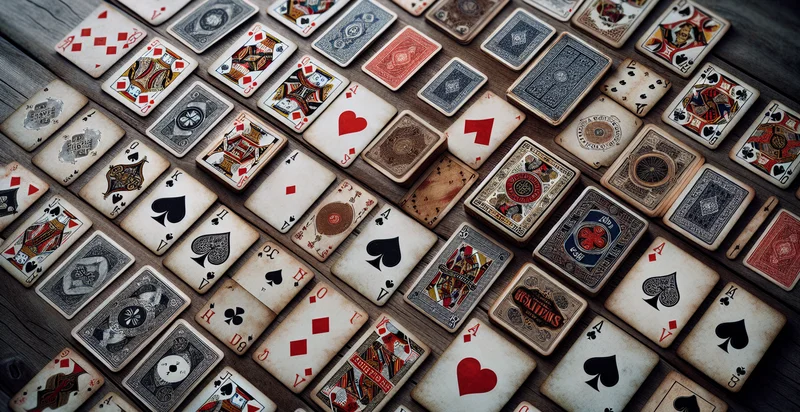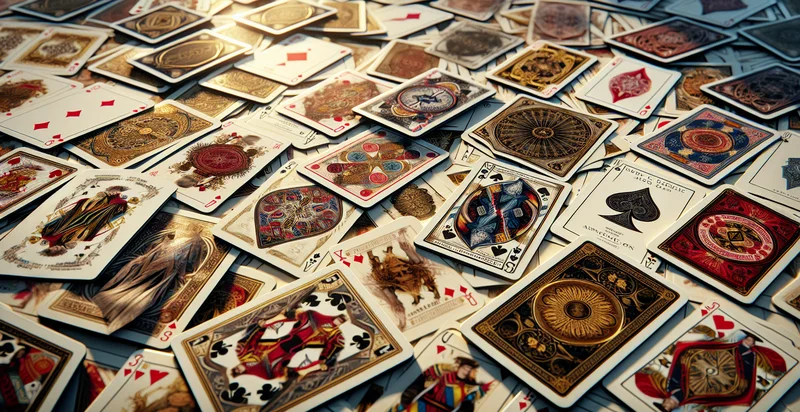Identify card suit type
using AI
Below is a free classifier to identify card suit type. Just upload your image, and our AI will predict the type of card suit it belongs to - in just seconds.

Contact us for API access
Or, use Nyckel to build highly-accurate custom classifiers in just minutes. No PhD required.
Get started
import nyckel
credentials = nyckel.Credentials("YOUR_CLIENT_ID", "YOUR_CLIENT_SECRET")
nyckel.invoke("card-suit-type", "your_image_url", credentials)
fetch('https://www.nyckel.com/v1/functions/card-suit-type/invoke', {
method: 'POST',
headers: {
'Authorization': 'Bearer ' + 'YOUR_BEARER_TOKEN',
'Content-Type': 'application/json',
},
body: JSON.stringify(
{"data": "your_image_url"}
)
})
.then(response => response.json())
.then(data => console.log(data));
curl -X POST \
-H "Content-Type: application/json" \
-H "Authorization: Bearer YOUR_BEARER_TOKEN" \
-d '{"data": "your_image_url"}' \
https://www.nyckel.com/v1/functions/card-suit-type/invoke
How this classifier works
To start, upload your image. Our AI tool will then predict the type of card suit it belongs to.
This pretrained image model uses a Nyckel-created dataset and has 4 labels, including Clubs, Diamonds, Hearts and Spades.
We'll also show a confidence score (the higher the number, the more confident the AI model is around the type of card suit it belongs to).
Whether you're just curious or building card suit type detection into your application, we hope our classifier proves helpful.
Related Classifiers
Need to identify card suit type at scale?
Get API or Zapier access to this classifier for free. It's perfect for:
- Automated Card Game Analysis: This use case involves using the card suit type identifier in online gaming platforms to automatically analyze player hands in real-time. By quickly identifying card suits, the system can enhance the user experience with immediate feedback on player hands or optimal strategies based on suit distributions.
- Card Sorting Machines: In industries that utilize playing cards or collectible trading cards, this function can be integrated into card sorting machines. By classifying cards by suit, the machine can quickly sort large batches, improving efficiency in packaging or inventory management for card retailers.
- Personalized Game Recommendations: Utilizing the card suit identifier, game streaming services can analyze users’ historical game plays and recommend new games based on their preferred suits. This adds a personalized touch to the gaming experience, increasing user engagement and satisfaction.
- Fraud Detection in Card Transactions: Financial institutions can leverage the suit classification function to enhance fraud detection systems, which monitor card usage patterns for anomalies. By analyzing card suit types in transactions, suspicious activities can be flagged more efficiently.
- Augmented Reality (AR) Card Games: In augmented reality card games, this function can be used to identify and interact with the cards more effectively. By recognizing card suits in a user’s environment, the game can dynamically adapt features, rules, or challenges based on the suits being played.
- Card Game Statistics and Analytics: Developers of card-based games can use the suit identifier to gather detailed statistics about game outcomes based on suit combinations. This data can provide insights into game balance, player strategies, and help refine game design for better playability.
- Educational Tools for Learning Card Games: The card suit type identifier can be implemented in educational applications aimed at teaching users how to play various card games. By recognizing and teaching suit identification, learners can grasp game concepts and strategies faster, making the educational process more interactive and engaging.


